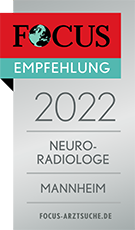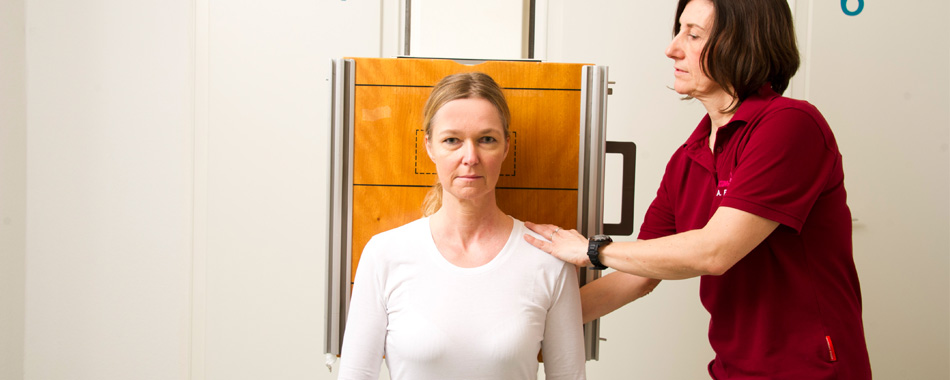Process of X-ray examination
How is the examination performed?
As a rule, the patients are asked to undress the respective part of the body, to remove the jewellery they eventually wear and to sit or lie down on the X-ray table. They will then receive a couple of brief instructions concerning the posture and breathing, after that the assistant will leave the room and make a recording.
The actual recording is made just within a few tenths of a second. During this time, you are not allowed to move or you should by all means follow the instructions given by the X-ray assistant or the doctor. Possibly, it will be necessary to make additional recordings. The X-ray assistant will tell you about that.
A fluoroscopy test will be personally carried by your radiologist.
Preparation for the examination
In conventional X-ray, the preparation is very different, depending on the examination to be performed. In any case, bring your previous X-rays and your X-ray record card along to the examination. With the majority of examinations, particularly those of the skeleton or chest, no preparation is necessary.It is totally different with the diagnostics of the kidneys, bile ducts or gastrointestinal tract. In this case, the patients should fast for a few hours, for that reason, the examinations are often performed directly in the morning. Sometimes it is even necessary to take a contrast media at home already. With diagnostics of intestinal disorders, the intestine should be emptied with the help of stronger laxatives.Please clarify the preparatory measures necessary for the planned examination already while making an appointment.
Contrast media in conventional X-ray
During some examinations, it is necessary to administer a contrast agent. A contrast agent causes artificial contrasts appear on an X-ray image. With the help of contrast agents, such hollow organs as the gastrointestinal tract, the bile ducts or blood vessels can be more clearly depicted and better examined.
Contrast media are necessary to increase the density of definite structures, thus, making them clearly visible. This is then shown on an X-ray image as a black and white image.
Contrast agents are either drunk or swallowed or injected intravenously.
If you are allergic to some contrast agents or other substances, please inform us about that when making an appointment for your examination, so that we can eventually choose another method of examination.
Fasting prior to the administration of contrast media
If you told before the X-ray examination that you will get a contrast agent, you should come on an empty stomach. It means for you that you should fast for 4 hours before the examination and take only small amounts of liquids. The reason: in case of a hypersensitivity reaction caused by iodine-containing contrast agents, although rarely reported, vomiting may occur. The inhalation of the acid gastric juice can lead to the severe damage of the lungs. It is a pure precautionary measure.
Strict fasting prior to the contrast study of the stomach or small intestine
For the contrast study of the stomach, strict fasting is required! With this examination, it is indispensable for a better assessability and expressiveness that the gastric mucosa is evenly covered by a contrast agent. It is no longer possible, if there is some fluid or food remains inside it.

